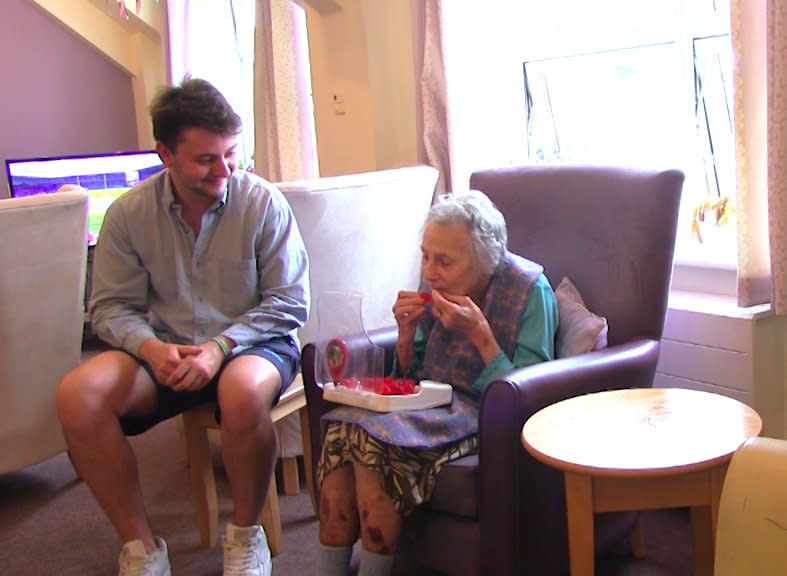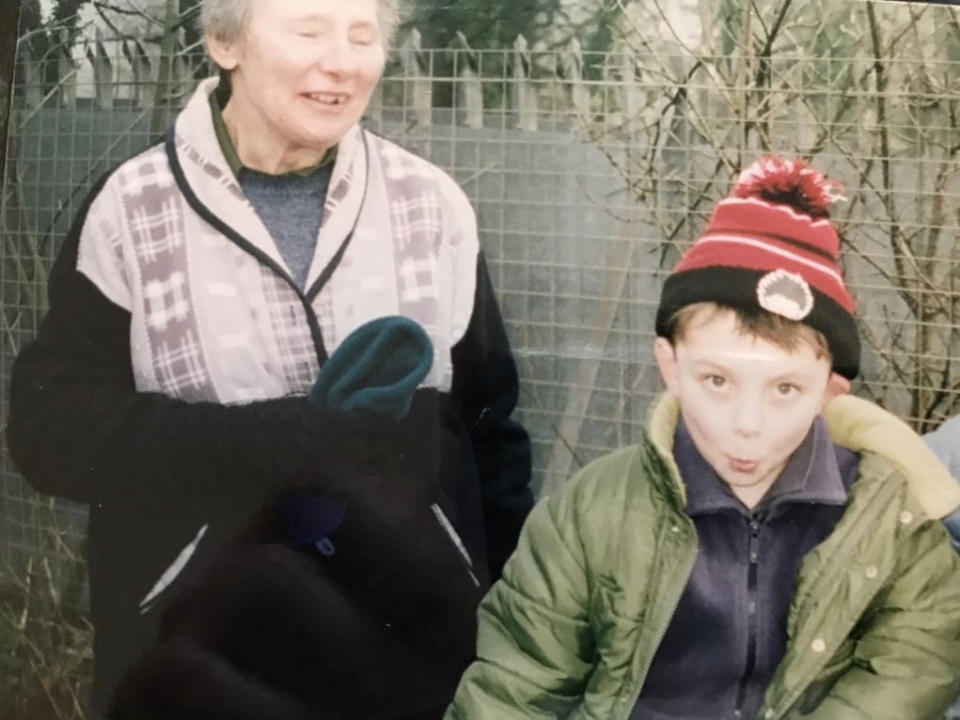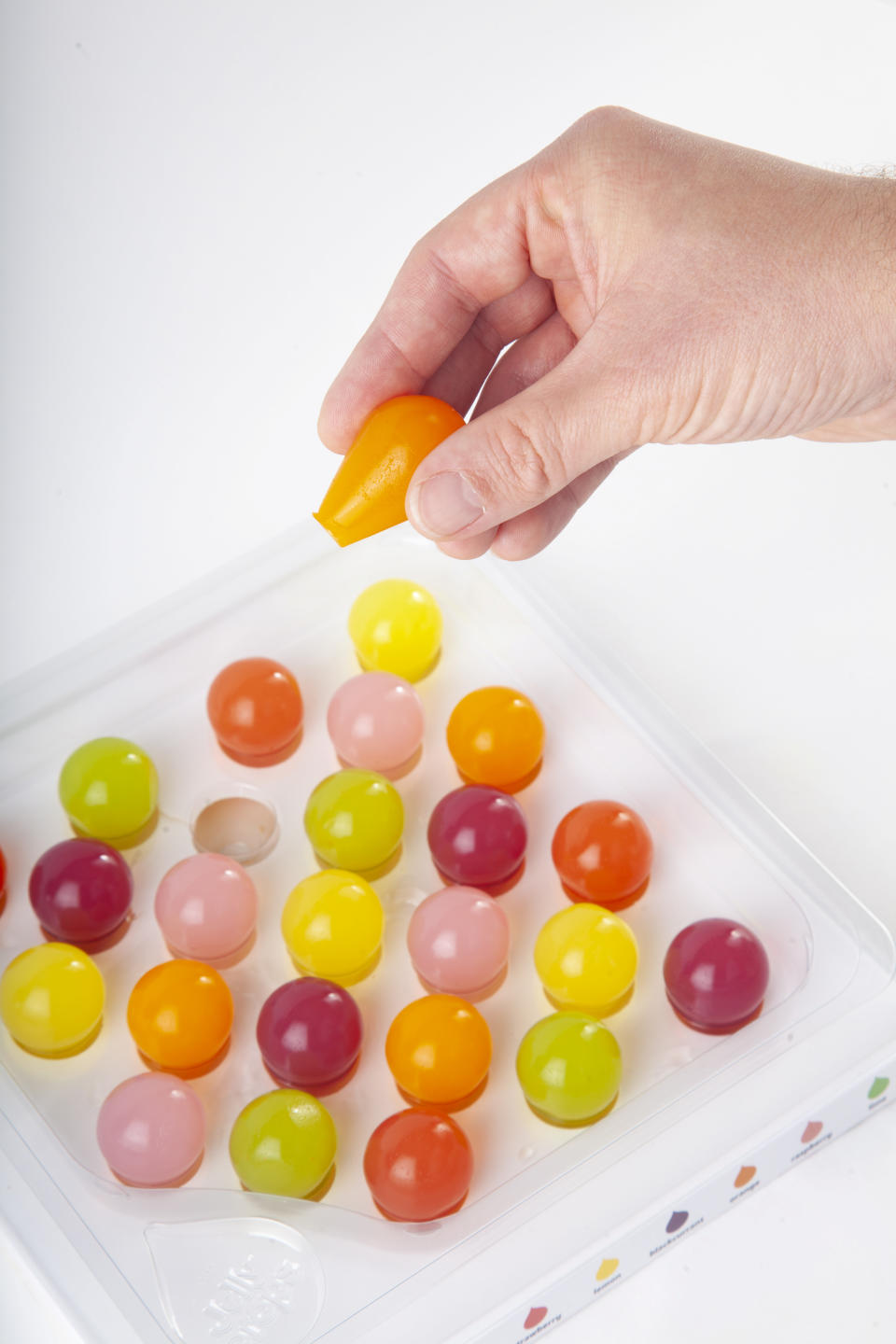Grandson creates 'water sweets' to prevent dehydration after caring for grandmother with dementia

A caring grandson has created a jelly sweet that could help boost the water intake of the elderly, after coming up with the idea while caring for his late grandmother.
Lewis Hornby, 26, developed Jelly Drops in response to his grandma Pat’s struggle with dehydration due to dementia.
Not drinking enough water can be a common problem among the elderly, particularly in those suffering with the neurological disorder, as it believed some sufferers forget to drink.
It is hoped Hornby’s sugar-free sweets, made up of 95% water and electrolytes, could help to combat the issue by enabling the elderly and those with dementia to boost their water intake independently.
Read more: What are the risk factors for dementia?
Dementia is an umbrella term used to describe a range of progressive neurological disorders, (conditions affecting the brain), according to Dementia UK,.

Hornby, who now lives in London, lived in his grandmother’s care home for a month to gain valuable insights before working with experts to bring the idea for the sweets to life.
After 18 months of testing, and support via £100k investment from the Alzheimer’s Society, the product finally launched on Tuesday 6 September.
In return for the charity’s investment, Jelly Drops will donate 1% of its profits to help fund further Alzheimer’s research.
The teardrop-shaped sweets are designed to be easy to pick up and come in six natural fruity flavours - strawberry, raspberry, blackcurrant, orange, lemon and lime.
Each tray holds 24 Jelly Drops, which equates to a boost of 300ml of water.
Watch: Can you eat your water intake?
Commenting on the launch, engineering graduate Hornby said: “The initial response to the product has been fantastic - we are very excited to supply the 50,000 people on our waiting list.
“We have seen a huge demand from both care homes and the families of people with dementia.
“It’s incredible to know that we can help those living with dementia and give comfort to their families and loved ones.
“It’s been heartwarming to hear the feedback from our first customers; they enjoy Jelly Drops as much as Grandma did.”
Read more: Excessive napping could be a sign of Alzheimer’s disease
Colin Capper, of the Alzheimer’s Society, said: “Jelly Drops was one of the first innovations to be accepted into our Accelerator Programme, and we’ve been thrilled to support its journey to a widely-available product, which is making a real difference to people with dementia.
“Original products and designs like Jelly Drops are key to helping overcome the everyday challenges faced by people with dementia, challenges that have been further amplified by the pandemic.”

Read more: Dementia diagnosis at a 'record high': Here's how to spot the signs
The NHS states symptoms of dehydration include feeling thirsty, dark yellow and strong-smelling pee, feeling dizzy or lightheaded, feeling tired, a dry mouth, lips and eyes, peeing little, and fewer than four times a day.
The NHS has put together some tips for carers to help make sure someone drinks enough water:
make sure they drink during mealtimes
make drinking a social thing, like "having a cup of tea"
offer them food with a high water content – for example, soups, ice cream or jellies, or fruits like melon.
Additional reporting SWNS.



